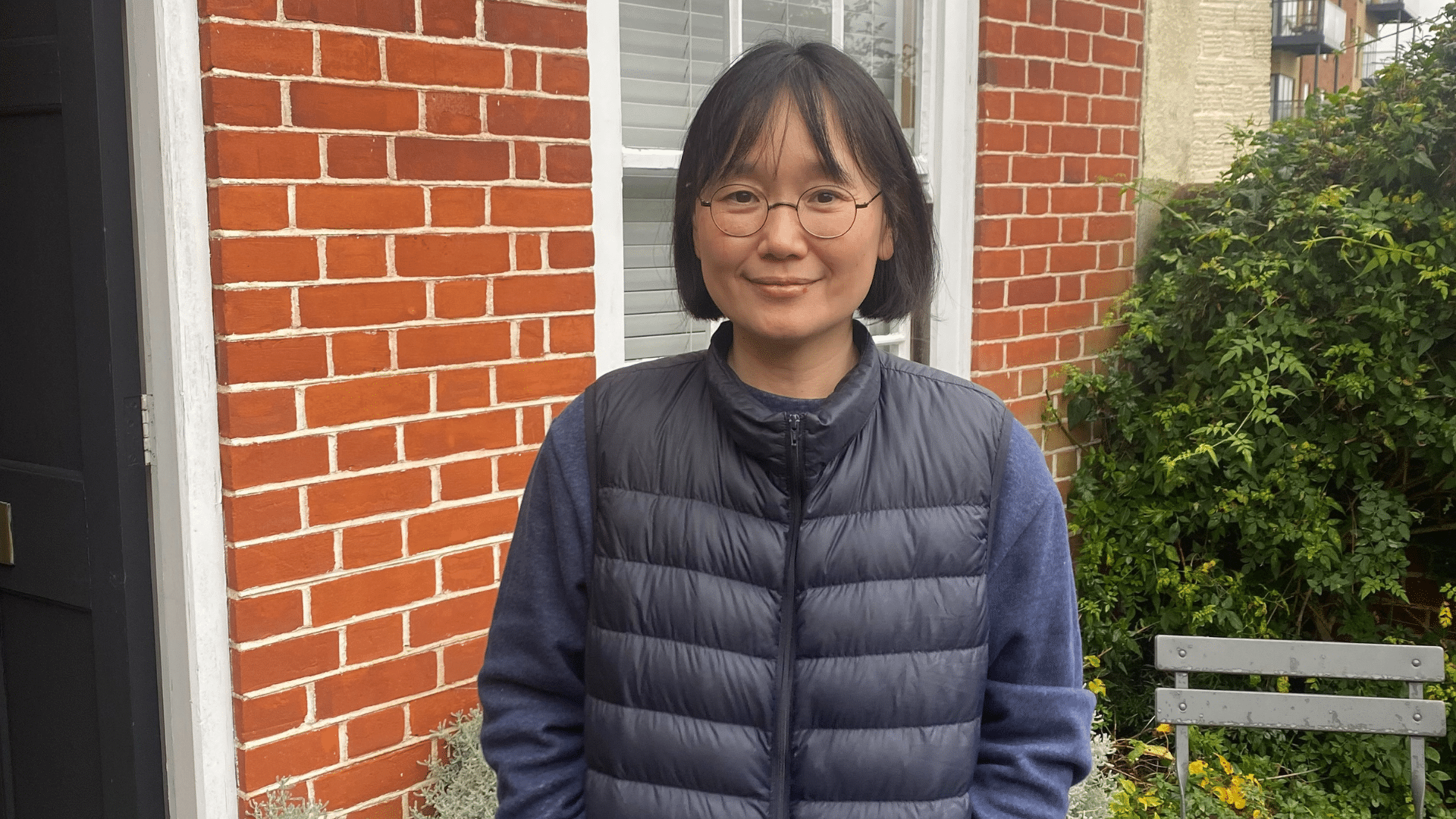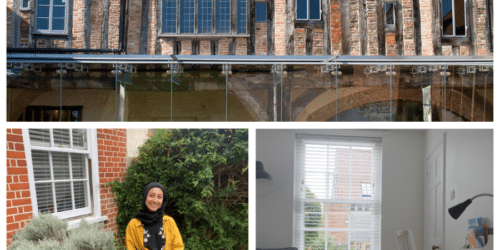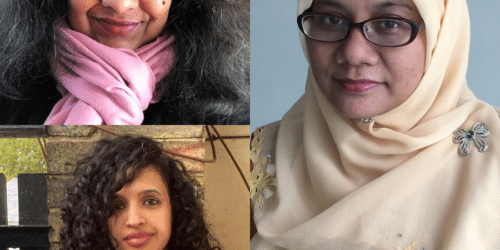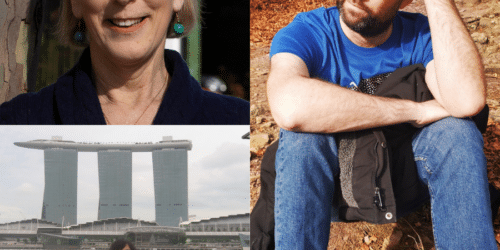
It feels like I’ve left something behind. But I can’t tell this to anyone: that something would be left there forever.
I left Norwich Airport and flew about two hours to Amsterdam, landing late at night, stayed there at a hotel for about seven hours, and took an hour-long flight in the early morning to Paris to get on the plane to Korea. The layovers weren’t long enough except for the one in Amsterdam, so for the whole trip, I was on guard—or rather, I couldn’t let my guard down. Whether it was while dashing through the airport with my carry-on luggage trailing behind me or while waiting for the delayed flight, the anxiety that I was missing something crept up inside me, and I kept checking that my passport, boarding pass, and mobile phone were all safely in my bag. Looking back, I think I was restless throughout my whole stay in the UK. All that time spent making sure my belongings were still where they belonged. Checking where I should be headed and whether that place had a spot for me. The direction Google Maps pointed at would often spin abruptly in the opposite direction, and I could almost never tell if I’d been spun the wrong way. I’d take a completely different path only to return to the original location, and in Manchester, my last stop of the trip, I ran around in circles over and over again. I’d worry myself sick that I’d miss the train, but once I arrived after a long detour, the delayed time was always waiting for me, which was rather fortunate. Going back to Norwich on a delayed train felt like going back home after a long trip, oddly enough.
Even if I end up letting everything else slip away, all I need to hold onto is myself. During my visit to the UK, I kept telling myself this, which is also strange. This wasn’t my first time going overseas, and I’d never considered what it meant to let go of myself. After two weeks in there, I felt like I was finally at ease in Norwich and London and lowered my guard; then, on the way to Edinburgh, I suddenly had to change trains, buy another ticket, and repeat the mistakes I wouldn’t have made, which led me to think about the phrase I’d never said out loud before. But the very moment I did, I just told myself: It’s okay. At that moment, it really felt like it was okay to release everything, to overlook all words, to lose my belongings, and to wander away from my way, because I keenly sensed my whole presence there, not needing to remind myself of the goal or the meaning of why I had to be there. And for the first time, I felt like I’d reached something, somewhere precise. The moment of realization struck me as bizarre; while I spoke, wrote, and told stories, I believed that no matter how accurately I tried to place my words, they were never and could never be accurate. So for me, it was impossible to find the right language, and I wished rather to find the words that could not reach somewhere exact; the ones in between. But in that moment, I was thinking the exact opposite. After going through the times of my message being translated into a foreign language, I started to believe that there was in fact a set of words out there that could deliver the true meaning, which sowed the fear in me that I was the only one who couldn’t find such a language. It was indeed a strange experience—the moment the things I perceived as concepts and metaphors became part of my own story, it was as if I’d confronted both the desire to find a very specific answer and the dread that I could never do so: something like the reality I faced when the safe, sturdy, yet fake wall of writing had vanished.
The Korea-bound flight was full of Korean families who’d come to Paris for the trip or laid over at the city. They were considerate of their fellow passengers and kept their voices low, but their words and laughter from the lingering excitement stirred the air, their chatter in Korean hovering around me even when I didn’t tune into their conversation. In Manchester, in Edinburgh, in London, and in Norwich, I kept Korean TV series and movies playing on Netflix, especially on the days that I felt I was missing something. The emptiness from being unable to precisely absorb someone else’s words put pressure on me, and I repeatedly went over trifle conversations in my head. I hoped to replay the past exchanges and verify the moments I’d missed. Even if I didn’t try, there would be moments of epiphany where I’d go, Ah, that’s why that conversation happened the way it did—the moment of real conversation—but unfortunately, those are just for me. Would the other person also have them, those moments? An in-flight movie I watched granted me such moments. Hearing Korean here and there on the plane to Korea left me with a strange sadness, and I still had nine hours ahead; I spun the globe that displayed where on the Earth I was on the screen, and without the path to my destination displayed, the Earth upside down made it obscure where I was in the world. I wanted to watch a story about people on the borderline, and there it was on the list of movies—the movie that Steve Waters had mentioned in the cafeteria at the University of East Anglia, the one a Korean-American director wrote and directed, starring Korean actors, and was yet to be released in Korean theatres. The conversation I’d had in the cafeteria occurred to me a few days later on the flight returning to Korea, and just like how in the scene where the writer in the movie arrived at her residency, the first day I arrived at Norwich came back to me: a swan I’d gazed at for a long time by the river in front of the cottage, the inside of the cottage that was a little chilly but still welcoming, the books that filled up the bookshelves in the living room, the time I spent imagining the new lives of the authors who’d stayed there, pulling out and reading the exact same books.
I’m not sure how and when this letter will arrive to you, but if it does one day, please say hello to the past me, lost and wandering. Our brief conversation might not reach me at that moment, but eventually, after making several stops elsewhere, it just might. Even if it doesn’t reach me, it would be enough if it could exist there at some point in time. It’s better that way; I could welcome those unexpected moments belatedly, even more readily.
Lee Yeonju is a playwright and director from Korea. Her plays, and her novel, focus on the stories of socially invisible people, including disabled, LGBTIQ individuals, and female workers. She is the winner of various awards, including the 8th DOOSAN Artist Award 2017, and ‘K-Theatre Awards Best 7 of 2019’ from the National Theatre Association of Korea.
During Lee Yeonju’s residency in November 2023, she researched contemporary British theatre, visiting theatre companies in London, Norwich, Colchester, Edinburgh and Manchester. Her residency was supported by the Arts Council of Korea.
Joheun Lee (Jo) is an aspiring literary translator from Korea, and a current mentee for the Emerging Literary Translator Mentorships 2024. She has been working as a Korean-to-English freelance translator for several commercial projects. A long-time fan of K-pop and many other subcultures, she finds herself drawn to the works on related topics and speculative fiction, especially by women and queer writers. A UX Designer by day, Jo now lives with her partner and two cats in Shanghai, China.







